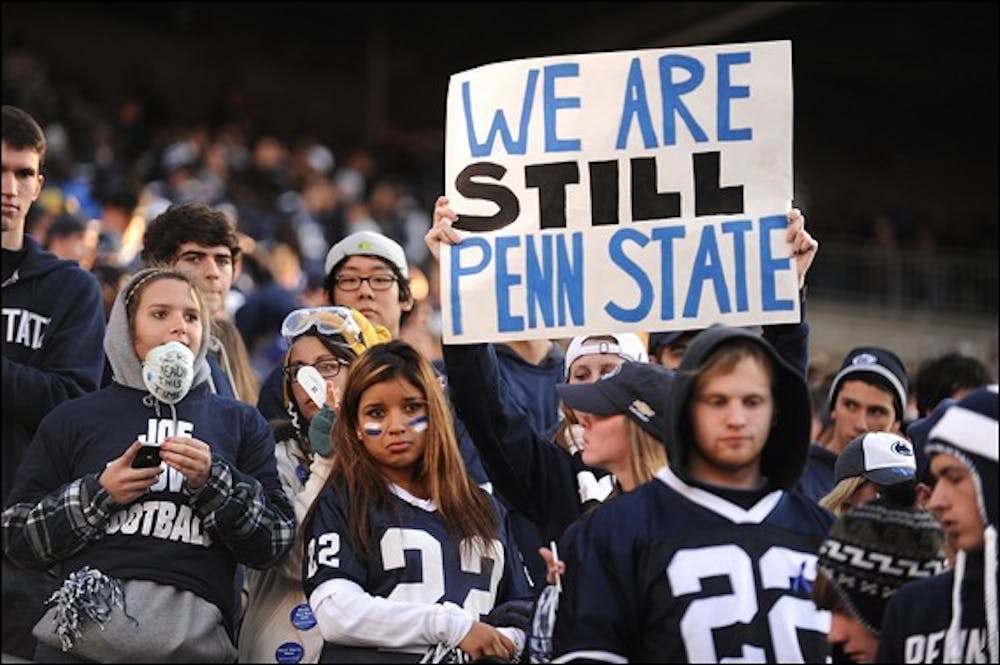The Elon University honor pledge states, "On my honor, I will uphold the values of Elon University: honesty, integrity, responsibility, respect." The university's website states this applies not only on campus, but "in locations and at events not occurring on campus," "in locations abroad" and "in situations involving technology as a means of recording or communication."
Essentially, wherever you go, you represent Elon. Every first year student is supposed to attend the Call to Honor ceremony during the fall of their first year and sign said pledge.
On the other hand, it states if you go to a school and something bad at that school happens, you are also associated with that unfortunate event.
Take the recent scandal at Pennsylvania State University. Emily Kaplan, a columnist for The Daily Collegian, Pennsylvania State's student newspaper, wrote a piece titled "Our pride should not change, we are Penn State." She writes about going home for Thanksgiving break and being pestered by family members and friends searching for a thought on the incident and that she got strange looks when she wore a Pennsylvania State football shirt to the grocery store.
She writes, "We've been thrust into the roles of ambassadors for Penn State. That doesn't mean we always have to defend the university. I don't know about you, but I'd have a hard time doing that wholeheartedly. Instead we must prove that this scandal and these men aren't what Penn State is all about. We are so much more than that."
Kaplan may think that and want to preach. It is an admirable plan of action in the face of this horrible tragedy. But, I wonder, is it realistic? The actions of Jerry Sandusky have placed a black mark on that university forever. Whenever anyone thinks Penn State, they will now associate it with sexual abuse gone unreported for way too long.
Here at Elon, students are reminded that all of their actions reflect not only themselves, but the university and all the organizations with which they are involved.
The reason? Because we are Elon students. When people who know us look at us, they will think we are an extension of Elon. That includes everything from academics, values, beliefs. When an Elon student does something, it reflects on the university. That is the point of emphasizing our connection with Elon no matter where we are in the world. But, as evidenced by the Pennsylvania State incident, as Kaplan described, what our university does reflects on us, as well.
The matter at stake here is this: we are our school's keeper just by signing up to take classes and live here. Is it fair? Unfortunately, yes. By attending this institution, we allow ourselves to be made statistics on the website and happy students in brochures and admissions videos. Does it take away some of our individual diversity? Sure. In the "real world," if you don't count college as that, we can be fired from our companies from how we reflect on them, even if it does not break the law or offend the majority. Elon senior running back Jamal Shuman, for instance, was suspended from the team for the last two games for comments he made on Twitter.
It may not be fair to us as individuals, but it is a fact of society. So we sit here in our classrooms and dorms, representing Elon as one student body because that's the deal we signed up for. The way we do that, though, is entirely up to us.


